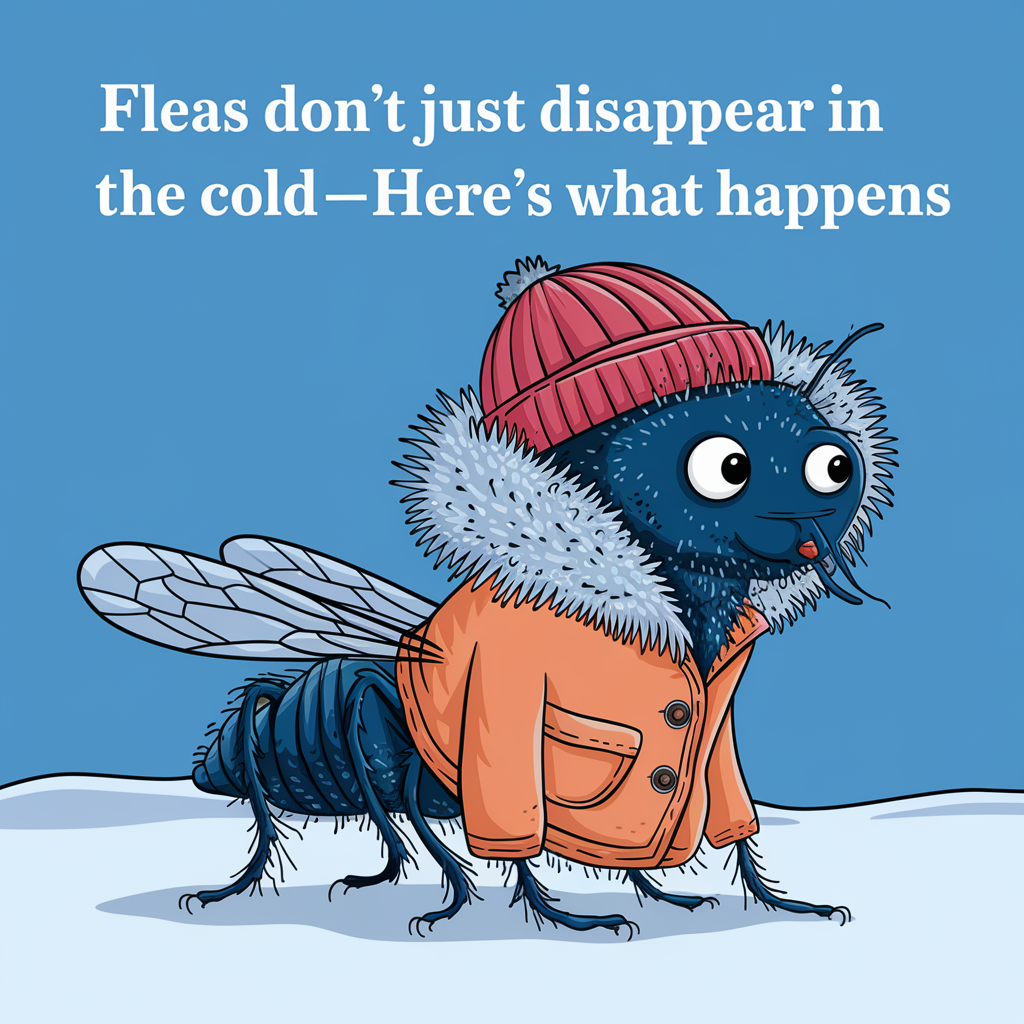
Can Fleas Survive Winter?
Let’s face it—fleas are the ultimate freeloaders. They don’t pay rent, they bite you, and they have the audacity to multiply like there’s no tomorrow. If you’re dreaming of winter as a magical time when fleas pack their bags and leave for good, I hate to break it to you: fleas are tougher than you think.
As someone who’s battled these tiny vampires more times than I care to admit, I can tell you that winter doesn’t mean an automatic eviction for fleas. Sure, they hate the cold, but as long as they can hitch a ride on your pet or cozy up in your warm home, they’ll find a way to survive. In this article, I’ll walk you through everything I’ve learned (sometimes the hard way) about how fleas handle winter and what you can do to get rid of them for good.
Let’s start by tackling a common question: do fleas just disappear in winter, or are they secretly plotting their next move?
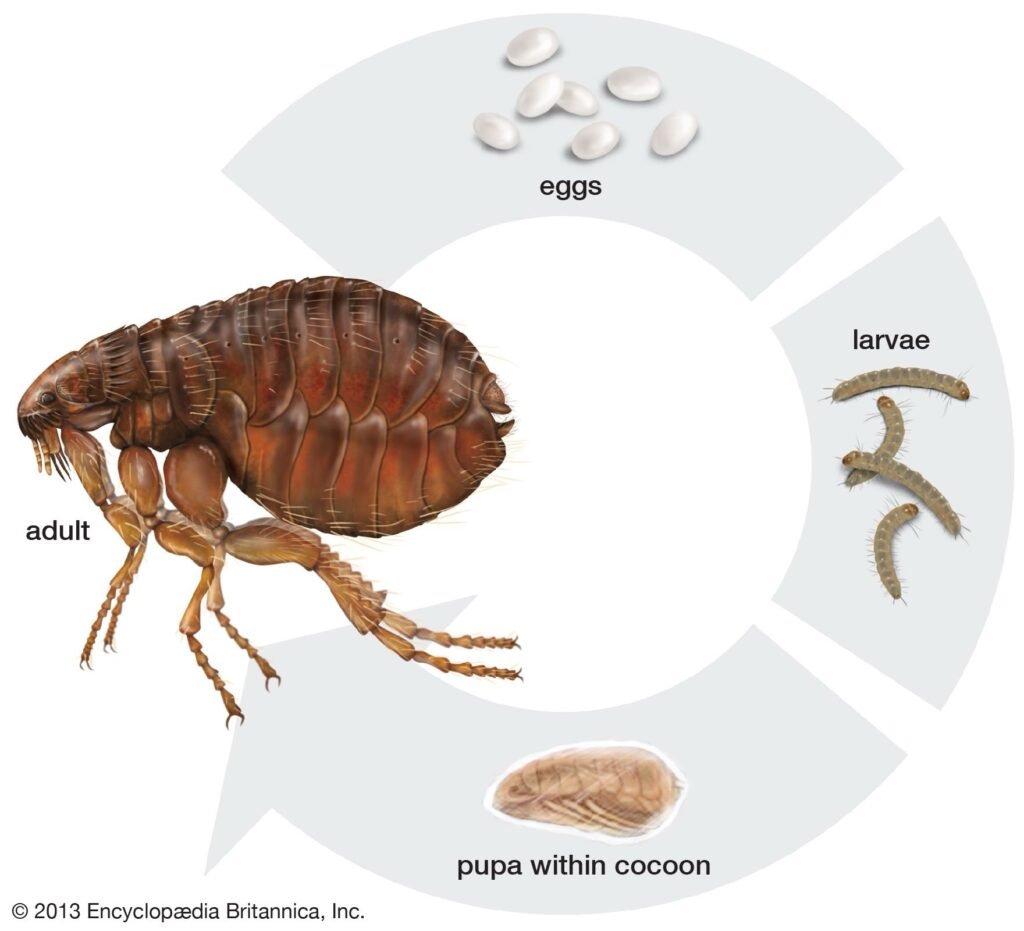
Will Fleas Go Away on Their Own in Winter?
Wouldn’t it be nice if fleas just vanished the moment temperatures dropped? Sadly, fleas aren’t that considerate. While the cold can slow them down outside, it’s a whole different story inside your home. Fleas are survival experts—they’ll do anything to stay alive, including turning your pets (and occasionally you) into their personal heating pads.
Here’s the deal: fleas thrive in warm, humid environments, which means your cozy home is basically their five-star winter resort. Even if you’re seeing fewer fleas outside, the ones indoors can still breed, lay eggs, and infest your carpets, furniture, and pet bedding like nothing ever happened.
I learned this the hard way one winter after assuming the flea problem would “take care of itself.” Spoiler alert: it didn’t. Instead, the fleas I didn’t bother dealing with in the fall made a grand comeback inside my house—and let me tell you, nothing says “Happy Holidays” like frantically vacuuming while scratching flea bites.
If you’re hoping the cold weather will solve your flea problem, think again. You need to actively treat your pets and home to get rid of them for good. Start with a guide like Winning the Battle Against Fleas and Ticks: A How-To Guide for a solid game plan.
So, will fleas go away on their own in winter? Nope. They’ll stay nice and warm indoors unless you take action to kick them out. Let’s talk about how cold it has to get for them to start dying off outdoors.
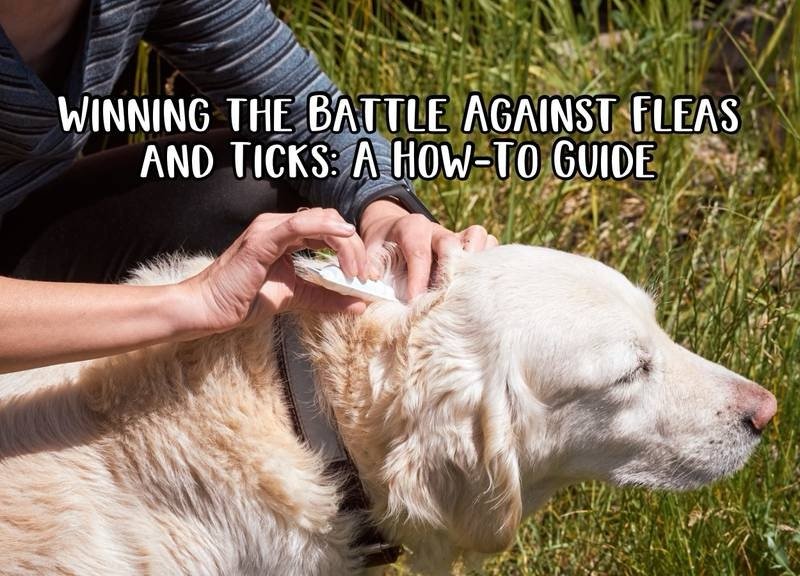
At What Cold Temperature Do Fleas Die?
Ah, cold weather: the natural enemy of fleas—or so we wish. Fleas can’t handle the cold for long, but don’t get too excited just yet. These pests are like tiny survivalists, ready to dig in and wait it out. So, how cold does it have to get for fleas to finally bite the dust?
Fleas start to die off when temperatures drop below 32°F (0°C) for several days in a row. But here’s the catch: it’s not an instant death sentence. Fleas and their eggs can survive brief cold snaps, and they’re experts at finding warm spots to hunker down, whether that’s a cozy pile of leaves, the fur of a roaming animal, or—unfortunately—your home.
And let’s not forget flea pupae (the cocoon stage). These little horrors are practically bombproof. Flea pupae can stay dormant for weeks or even months, waiting for the right conditions to hatch. So even if you get a stretch of freezing weather, they might just be waiting to ambush you when things warm up again.
The truth is, cold weather isn’t your golden ticket to a flea-free yard. If you’ve dealt with fleas in the warmer months, chances are they’re still lurking around in some form. That’s why it’s smart to stay on top of flea treatments, no matter the season. And don’t forget to keep your pets protected—check out How to Effectively Rid Your Pets of Fleas and Ticks for tips that actually work.
Now that we know fleas aren’t exactly frost-proof, let’s tackle one of the more extreme ideas out there: can you freeze your house to kill fleas? Let’s dive in.
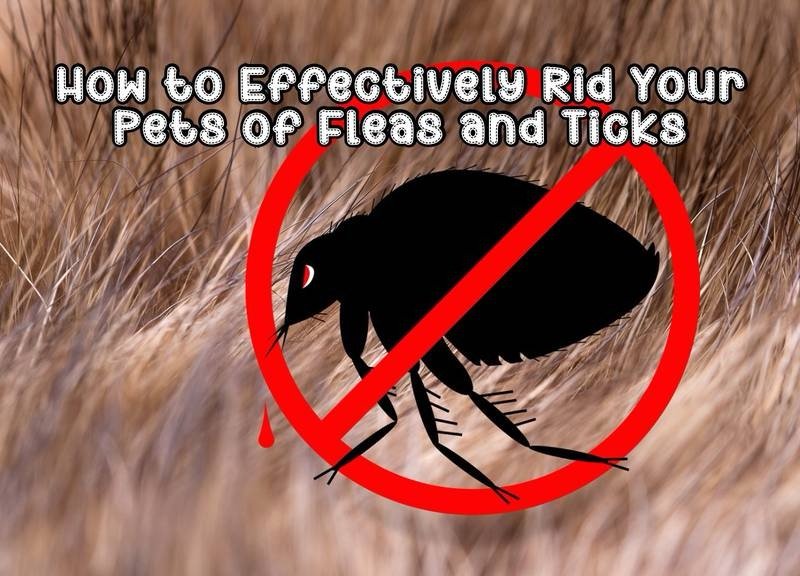
Can I Freeze My House to Kill Fleas?
Okay, I know what you’re thinking. If fleas can’t handle the cold, why not crank down the thermostat or leave the windows open during a blizzard? While the idea of turning your home into a flea icebox might sound tempting, let’s be real—freezing your house is about as practical as giving fleas an eviction notice and expecting them to pack up and leave.
Here’s the reality: unless you’re living in an actual freezer, freezing your house isn’t going to work. Fleas can survive in temperatures as low as 50°F if they have a host (aka your pet or even you). And let’s not forget, freezing your home would likely lead to frozen pipes, hypothermia, and very unhappy roommates or family members.
Even if you could pull it off, freezing fleas takes more than just a cold breeze. Fleas, eggs, and larvae would need to be exposed to below-freezing temperatures (32°F or lower) for several consecutive days to die. Your warm furniture, carpeting, and snuggly pets would still offer them plenty of hiding spots.
So, no, freezing your house isn’t a practical solution. What does work? Regular treatments, vacuuming, and using effective flea sprays like Adams Flea & Tick Home Spray, which kills fleas on contact. Trust me, it’s a much safer and more effective way to clear out fleas without turning your living room into the Arctic tundra.
Since we’ve ruled out freezing your house, let’s talk about a less drastic option: smells that fleas can’t stand. This might just help keep them at bay!
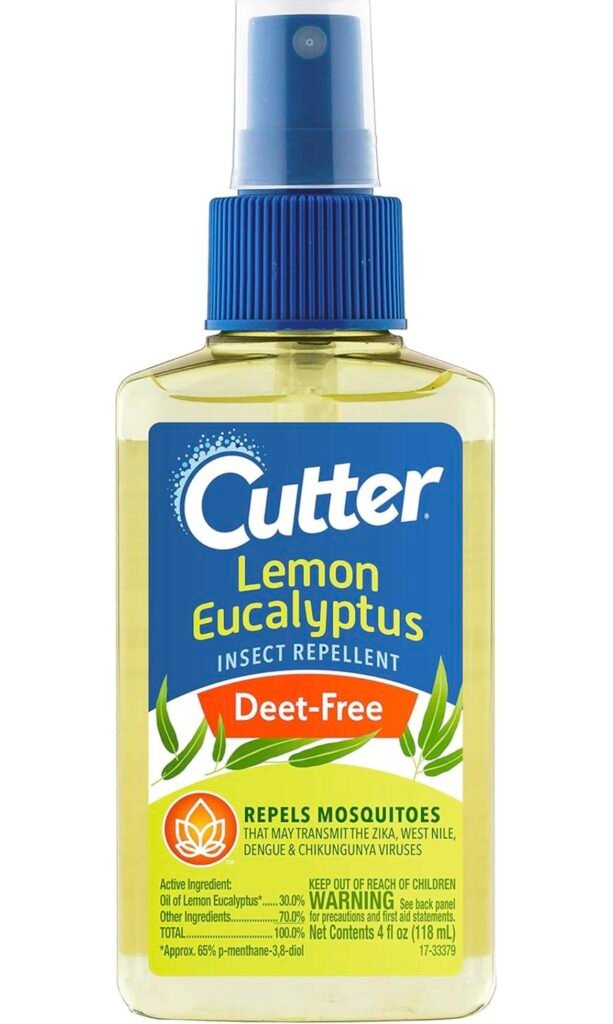
What Smell Do Fleas Hate?
If fleas had noses like ours, they’d be running for the hills at certain scents. Luckily, while they may not have a refined sense of smell, fleas do hate certain odors—and this is where you can use nature to your advantage.
Here are some smells fleas absolutely can’t stand:
- Cedarwood: The earthy aroma of cedar is a natural flea repellent. Fleas despise it, which is why cedar chips or cedar oil sprays are often recommended for flea prevention. Bonus: your home will smell like a cozy cabin!
- Lavender: While lavender smells relaxing to us, fleas can’t stand it. Add a few drops of lavender oil to your pet’s bedding or mix it with water to make a safe spray for your home.
- Eucalyptus: This fresh scent not only repels fleas but can also help with sinus congestion (a win for you!). Use eucalyptus oil in a diffuser or dilute it for a light spray around the house.
- Peppermint: Another flea-hated scent, peppermint oil can be mixed with water and sprayed in flea-prone areas. Plus, it smells like you just stepped into a holiday store.
I’ve personally used lavender and cedar oil in my home after a flea outbreak, and not only did it help deter the fleas, but my house smelled like a spa instead of a battlefield. Just be cautious when using essential oils around pets—some oils can be harmful to cats and dogs, so always dilute them properly or consult your vet first.
If you’re looking for a more comprehensive flea control strategy, including treating pets directly, check out How to Effectively Rid Your Pets of Fleas and Ticks.
Now that you know how to keep fleas from wanting to settle down in your space, let’s move on to an important question: should you still treat your yard for fleas during the winter? Let’s find out.
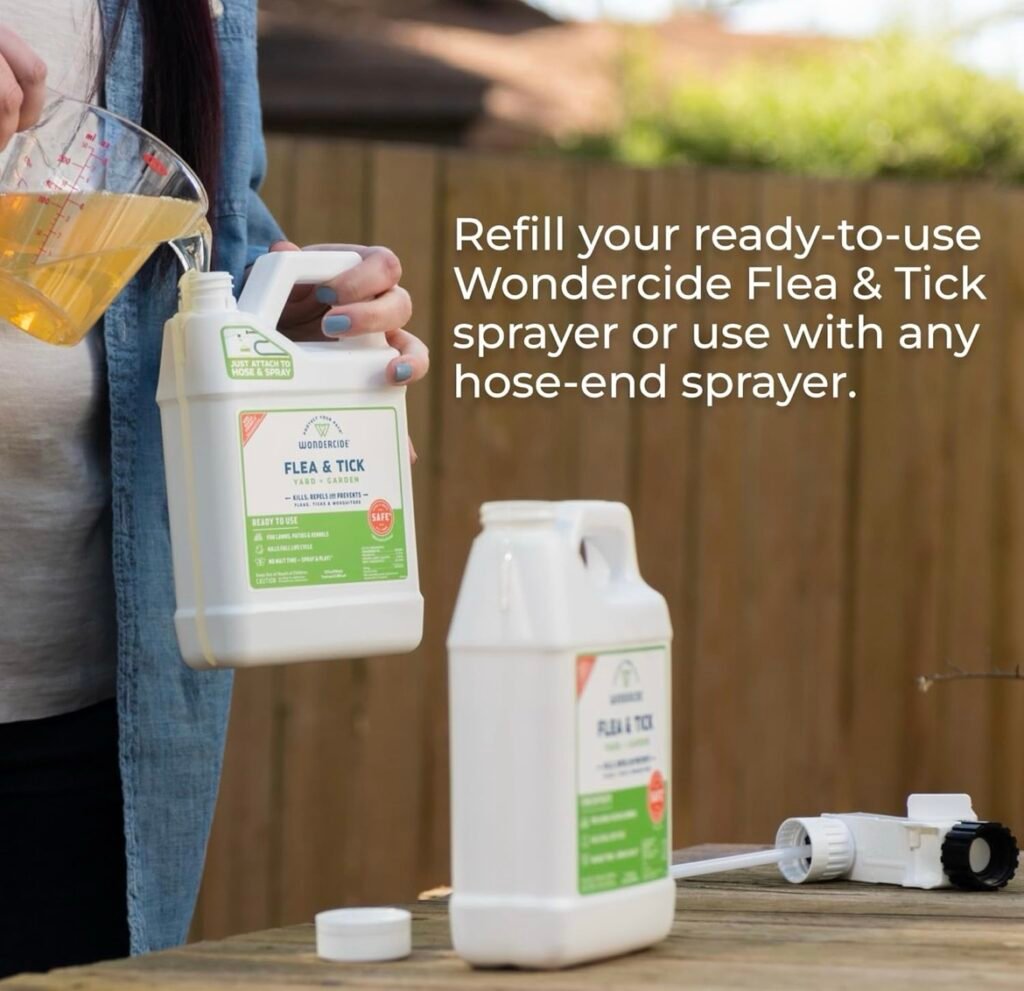
Do I Need to Treat My Yard for Fleas in the Winter?
You might think winter gives you a free pass on yard maintenance when it comes to fleas. After all, aren’t they all frozen and gone for good? Unfortunately, fleas are sneakier than that. While freezing temperatures can kill adult fleas, their eggs, larvae, and pupae (the creepy cocoons) can survive in protected areas, like under leaves, in mulch, or in shaded spots.
Here’s why you might still need to treat your yard in winter:
- Eggs and Larvae Can Hibernate: Flea eggs and larvae can go dormant when temperatures drop, waiting for the perfect moment (like an unseasonably warm day) to hatch and start the cycle all over again.
- Wildlife Hosts: Fleas hitch rides on wildlife like squirrels, raccoons, and stray cats, and these animals can drop fleas into your yard even during winter.
- Mild Winters: If your region doesn’t experience long stretches of freezing temperatures, fleas might not die off outside at all.
Winter Yard Maintenance Tips to Combat Fleas
- Rake and Remove Debris: Fleas love to hide in piles of leaves or tall grass. Keep your yard tidy to eliminate their hiding spots.
- Apply Flea Treatments: Use a flea spray or granules specifically designed for outdoor use, even during winter. Focus on shady, damp areas where fleas are likely to survive.
- Deter Wildlife: Limit access to your yard for animals that might carry fleas by securing trash cans, removing food sources, and sealing entry points into your outdoor space.
Taking a proactive approach in your yard ensures that fleas don’t use it as a winter vacation spot. For more tips on effective flea control both indoors and outdoors, check out Winning the Battle Against Fleas and Ticks: A How-To Guide.
With your yard under control, let’s tackle another popular question: can fleas survive a washing machine? Spoiler: they might not like the spin cycle.

Can Fleas Survive a Washing Machine?
If you’ve ever tossed flea-infested bedding or clothing into the washing machine and hoped for the best, you’re not alone. But can fleas really survive a trip through the wash? Unfortunately, the answer isn’t as straightforward as you might hope.
Here’s the deal: fleas are incredibly resilient, but they have their limits. Hot water and detergent are your best friends when it comes to killing fleas, their eggs, and larvae. If you wash items on a cold or lukewarm cycle, though, some fleas may survive the ride—because of course they would.
How to Ensure Fleas Don’t Survive the Wash
- Use Hot Water: Fleas can’t handle extreme heat, so always wash flea-infested items on the hottest setting possible (check care labels first to avoid damaging fabrics).
- Add Detergent: Regular laundry detergent helps break down the flea’s protective coating, making it harder for them to survive.
- Dry on High Heat: The washing machine is only half the battle. Tossing items in the dryer on the highest heat setting will finish the job, as the heat will kill any lingering fleas, eggs, or larvae.
I once learned this lesson the hard way after washing my dog’s bedding on a lukewarm cycle. Let’s just say, finding a couple of very alive fleas crawling out of the laundry afterward wasn’t my idea of a successful wash day. Since then, it’s hot water and high heat or bust.
For those dealing with flea infestations on pets, it’s also essential to address your furry friends directly. Kitten in Distress: Banish Fleas with These Simple Steps is a great guide for tackling fleas on pets safely and effectively.
Now that we’ve covered the washing machine’s role in flea control, let’s move on to a burning question: will fleas eventually die off on their own? Spoiler: it’s not that simple.

Will Fleas Eventually Die Off?
I wish I could tell you fleas have an expiration date and will simply vanish on their own, but sadly, they’re not that considerate. Fleas won’t magically disappear unless you actively intervene. Why? Because fleas are like the uninvited houseguests who never leave—they reproduce faster than you can imagine and adapt to survive.
The Flea Lifecycle: Why They Stick Around
- Eggs, Larvae, Pupae, and Adults: Fleas don’t just exist in one form. Eggs hatch into larvae, which then form pupae (cocoons), and finally, adult fleas emerge. This lifecycle can last for weeks or months, and the dormant pupae stage allows them to wait for ideal conditions to thrive.
- Indoors = Ideal Conditions: Fleas love warm, humid environments. Your cozy home provides the perfect climate for them to continue breeding year-round, even if it’s freezing outside.
- Feeding on Hosts: As long as fleas have a host—your pets or, yes, even you—they can keep feeding and reproducing indefinitely.
The Truth: They Won’t Go Away on Their Own
Fleas are survivors, and unless you actively break their lifecycle, they’ll continue to thrive. This means treating your home, your yard, and your pets all at the same time. Vacuuming regularly, washing pet bedding, and using effective flea treatments like Adams Flea & Tick Home Spray can make a world of difference.
When I first dealt with fleas, I naively thought, “Oh, they’ll die off eventually.” Fast-forward a few weeks, and I was scratching bites while vacuuming my entire house twice a day. The lesson? If you want fleas gone, you have to fight back.
Speaking of fighting back, let’s talk about instant solutions—what kills fleas on contact and gives you that immediate relief? Let’s see!
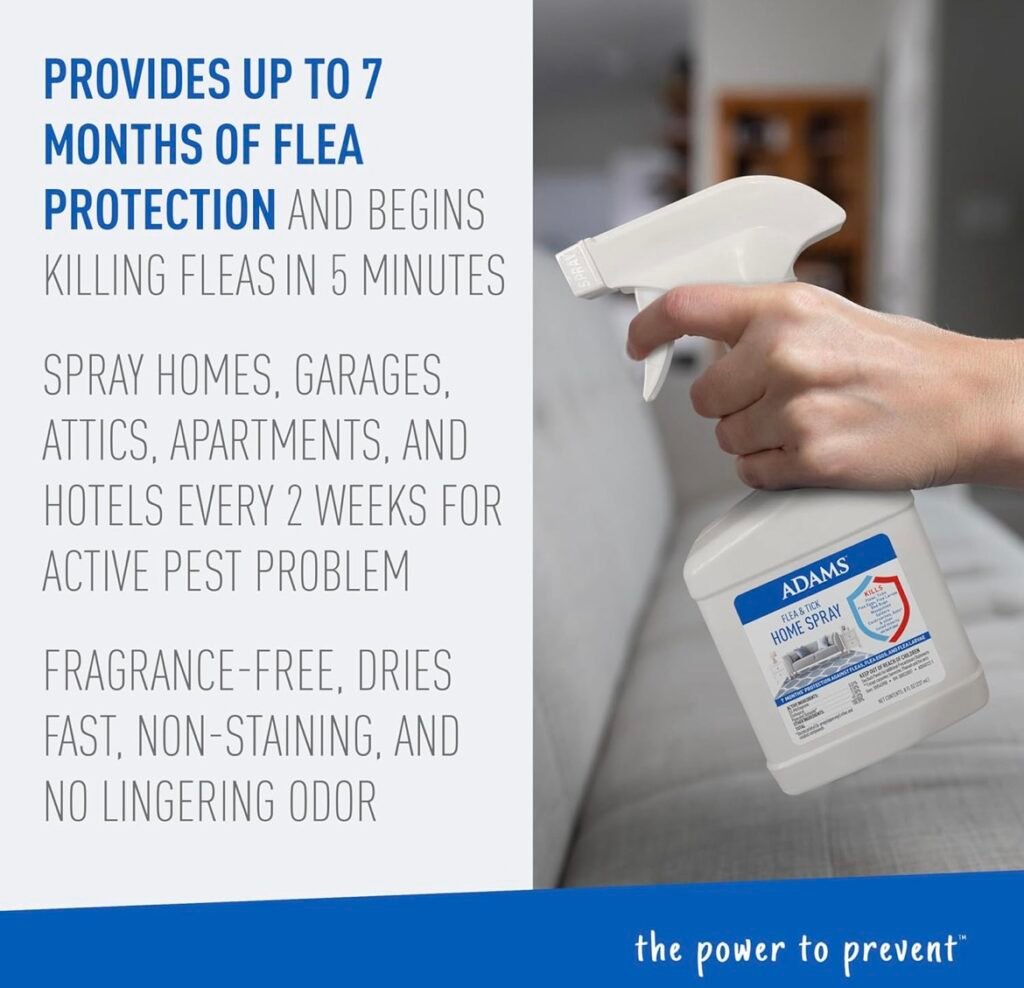
What Kills Fleas on Contact Instantly?
When you’re dealing with a flea infestation, nothing feels more satisfying than finding something that kills them on the spot. Trust me, after seeing fleas hop around my house like they owned the place, I wanted them gone yesterday. So, what actually works to kill fleas instantly?
Products That Work Fast
- Adams Flea & Tick Home Spray
This spray is a game-changer. It kills fleas on contact, including their eggs and larvae, which is crucial for breaking the flea lifecycle. It also works on carpets, furniture, and pet bedding, making it a versatile option for treating your home. I used it in every corner of my house during an outbreak, and the results were almost immediate. - Diatomaceous Earth (Food Grade)
This natural powder kills fleas by dehydrating them. Sprinkle it in problem areas like carpets, let it sit for 24 hours, and then vacuum it up. It’s a non-toxic option, but be careful to use food-grade diatomaceous earth, as the industrial version isn’t safe for pets or humans. - Soapy Water Trap
Here’s a classic DIY method: place a shallow dish of soapy water near a light source at night. Fleas are attracted to the light, jump into the water, and drown. It’s not the ultimate solution, but it’s satisfying to see how many you catch overnight.
What About Natural Sprays?
While natural sprays (like vinegar or essential oil blends) can repel fleas, they don’t usually kill them on contact. If you’re looking for instant results, stick to proven products like Adams Flea & Tick Home Spray or diatomaceous earth.
Using an instant-kill product is only part of the solution. You’ll still need to vacuum regularly, treat your pets, and address any lingering eggs or larvae in your home. Speaking of bites, if you’re the unlucky one fleas seem to love snacking on, let’s talk about what you can spray on your body to keep them away.
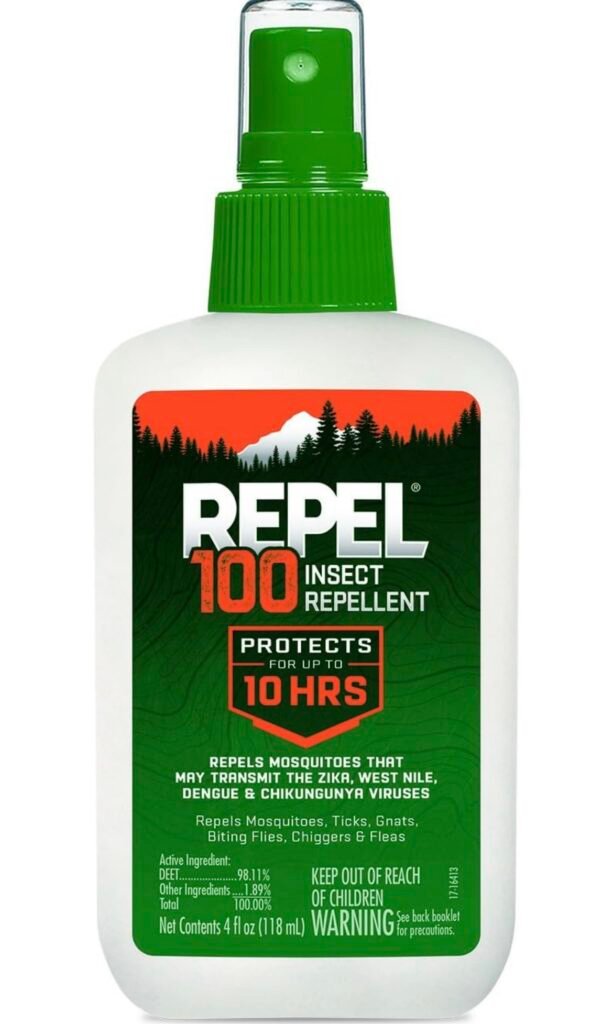
What Can I Spray on My Body to Keep Fleas From Biting Me?
If you’ve ever been caught in the middle of a flea infestation, you know how relentless those little pests can be. Sure, you’re treating your pets and your home, but what about yourself? Fleas don’t discriminate—they’ll bite humans if given the chance, especially if their favorite furry host isn’t immediately available. So, what can you spray on your body to keep fleas from turning you into their next snack?
Top Products to Repel Fleas
- Repel 100 Insect Repellent
This heavy-duty repellent isn’t just for mosquitoes—it works on fleas too. With 98% DEET, it offers up to 10 hours of protection, making it perfect for when you’re tackling an infestation or spending time in flea-prone areas. A few sprays on your skin or clothing can help keep fleas at bay. - Essential Oil Blends
Fleas hate the smell of certain essential oils, like cedarwood, lavender, and eucalyptus. You can make a DIY repellent by mixing a few drops of these oils with a carrier oil (like coconut or almond oil) and applying it to exposed skin. Be careful, though—some essential oils can irritate the skin, so always do a patch test first.
Tips to Prevent Flea Bites on Humans
- Wear Long Clothing: When dealing with fleas, covering your skin with long sleeves and pants can reduce the chances of bites.
- Spray Your Shoes and Socks: Fleas tend to target the lower legs first, so spraying repellent on your shoes and socks adds an extra layer of protection.
- Stay Off Flea-Infested Furniture: If your home has fleas, avoid sitting on carpets, upholstered furniture, or pet bedding until you’ve treated the infestation.
I learned the importance of repelling fleas the hard way after stepping into a flea-infested room unprotected. Let’s just say I became an unwilling buffet that day. After that, Repel 100 Insect Repellent became my go-to for keeping fleas off me while I treated the house.
Of course, the best way to stop fleas from biting is to get rid of them entirely. Now that we’ve covered personal protection, let’s wrap things up with some tips for controlling fleas year-round.
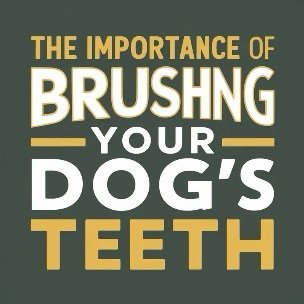
Tips for Controlling Fleas Year-Round
Fleas don’t take vacations, and while winter might slow them down outdoors, they can thrive indoors year-round if you don’t take action. Trust me, I’ve been there—thinking the problem was gone, only for the fleas to come back like they owned the place. Here’s what I’ve learned about keeping them under control 12 months a year.
1. Treat Your Pets Regularly
Your pets are flea magnets, so keeping them protected is the first line of defense. Use vet-approved flea preventatives like topical treatments, oral medications, or flea collars. For a detailed guide, check out How to Effectively Rid Your Pets of Fleas and Ticks.
2. Stay On Top of Home Cleaning
- Vacuum Frequently: Vacuuming removes flea eggs, larvae, and adults from carpets and furniture. Focus on areas your pets frequent the most.
- Wash Bedding and Blankets: Clean pet bedding, throws, and even your own linens in hot water to kill any lingering fleas.
- Use a Reliable Flea Spray: Products like Adams Flea & Tick Home Spray are great for treating surfaces where fleas might hide, such as rugs, upholstery, and pet bedding.
3. Treat Your Yard
Even during winter, fleas can hang out in your yard, waiting for warmer days. Regularly rake up leaves and apply an outdoor flea treatment to high-risk areas like shaded spots and under decks.
4. Be Proactive in Winter
Don’t assume fleas are gone just because it’s cold. Continue flea prevention treatments on your pets and keep vacuuming and cleaning indoors. Fleas thrive in warm indoor spaces, especially in homes with central heating.
5. Break the Lifecycle
Fleas won’t go away unless you disrupt their lifecycle. This means addressing not just the adults but also the eggs, larvae, and pupae. Use flea sprays and powders that target all life stages, and re-treat areas every few weeks to catch any new hatchlings.
Year-round vigilance is key when it comes to fleas. A little effort each month will save you from dealing with a full-blown infestation later. With the right approach, you can protect your home, pets, and yourself from these pesky freeloaders, no matter the season.

So…Can Fleas Survive Winter?
Fleas may be small, but they’re some of the most stubborn pests you’ll ever face. Winter doesn’t mean the end of their reign of terror. While freezing temperatures can kill fleas outdoors, the ones hiding in your home, on your pets, or even in your yard can survive and continue to thrive.
Here’s the bottom line: fleas won’t go away on their own. Whether it’s winter, spring, or the dead of summer, they’ll stick around unless you actively fight back. That means treating your pets, cleaning your home, and addressing any outdoor hotspots—even during the colder months.
Key takeaways:
- Fleas can survive winter indoors, so don’t let your guard down just because it’s cold outside.
- Use reliable products like Adams Flea & Tick Home Spray to kill fleas on contact and break their lifecycle.
- For personal protection, a strong repellent like Repel 100 Insect Repellent can help keep fleas from biting you.
- Year-round prevention is your best bet to keep fleas from making themselves at home.
Dealing with fleas isn’t fun—I’ve been there, and it’s a battle you don’t want to fight twice. But with consistent effort, the right tools, and a proactive approach, you can reclaim your home and keep these pests out for good.
For more flea-fighting strategies, don’t miss these helpful resources:
- Winning the Battle Against Fleas and Ticks: A How-To Guide
- Kitten in Distress: Banish Fleas with These Simple Steps
- How to Effectively Rid Your Pets of Fleas and Ticks
Remember, winter doesn’t stop fleas—but with the right approach, you absolutely can. Good luck, and may your home be flea-free all year round!
As an Amazon Associate we earn from qualifying purchases through some links in our articles.




